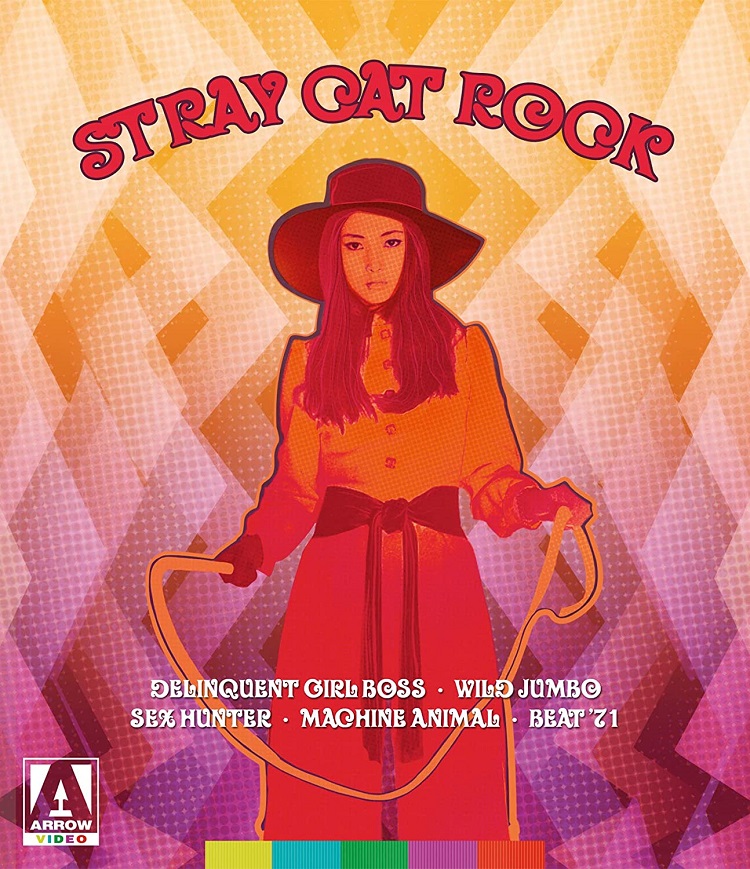
Starting in 1970, Japan’s Nikkatsu studio produced the five films presented here, labelling them all under the Stray Cat Rock umbrella even though they aren’t really related. Although they have different characters and mostly different actors, their one common thread is their examination of Japan’s counterculture of the time. Characters are young, brash, and cool, existing in an underground of dance clubs, biker gangs, and vice, with nary a salaryman or authority figure in sight.
The films are all about shaking up the status quo, but they also never venture too far out into leftfield like the works of earlier studio director Seijun Suzuki (Branded to Kill). Sure, they veer off the tracks with occasional musical interludes and sometimes incomprehensible plotting, but for the most part each film has a story to tell and rolls it out in a fairly straightforward manner. Most importantly, they’re all deliriously fun to watch and superb time capsules of an era that oozes cool.
In Delinquent Girl Boss, a female biker gang takes on an organized crime syndicate, leading to plenty of opportunities for thrilling fight scenes.
Wild Jumbo is at its core a conventional heist film, where a group of outsiders carefully plan and carry out a robbery, then attempt to escape its repercussions.
Despite Sex Hunter‘s lurid title, it’s not about sex, but instead focuses on racial purity as it follows a half-Japanese man named Kazuma who spends most of the film on the run from the racist Baron and his gang of Jeep-cruising thugs.
Machine Animal focuses on a gang that attempts to help a US draft dodger escape the country, while concurrently dealing with a huge LSD cache making the rounds.
Finally, Beat ’71 closes out the series with recurring star Meiko Kaji (Lady Snowblood) sent to prison by her boyfriend’s father, leading to her teaming up with other outsiders to make her way back.
Bonus features are fairly light, with only recent interviews with a couple of cast members and a director, along with the original trailers. The box set includes both Blu-ray and DVD formats of the films, and while the Blus have slightly better image quality, the DVDs are more than up to the limited technical demands of these low-budget productions. Speaking of image quality, the films are in surprisingly good shape here, with consistent tones and no dirt or scratches.The set is rounded out by a collector’s booklet containing pictures and an enlightening essay about Nikkatsu, the films, and the general climate of the Japanese society and film industry of the time.